Event highlights
1 May 2024
“What we really want to do is to prevent the next pandemic, not just respond to it”
New infectious diseases, re-emerging threats such as vaccine-preventable diseases, the devastating toll of climate change on individual and collective health – these, and more, are challenges we must tackle together.
As a network of health security networks, the Pan-European Network for Disease Control (NDC) has made it its mission to bolster the preparedness of the WHO European Region, spanning 53 Member States across Europe and central Asia.
It will do this by proactively identifying and mitigating potential risks before they escalate into regional or global threats, and, not least, by sharing critical information quickly and openly to build greater trust and break down silos that hinder preparedness and response.
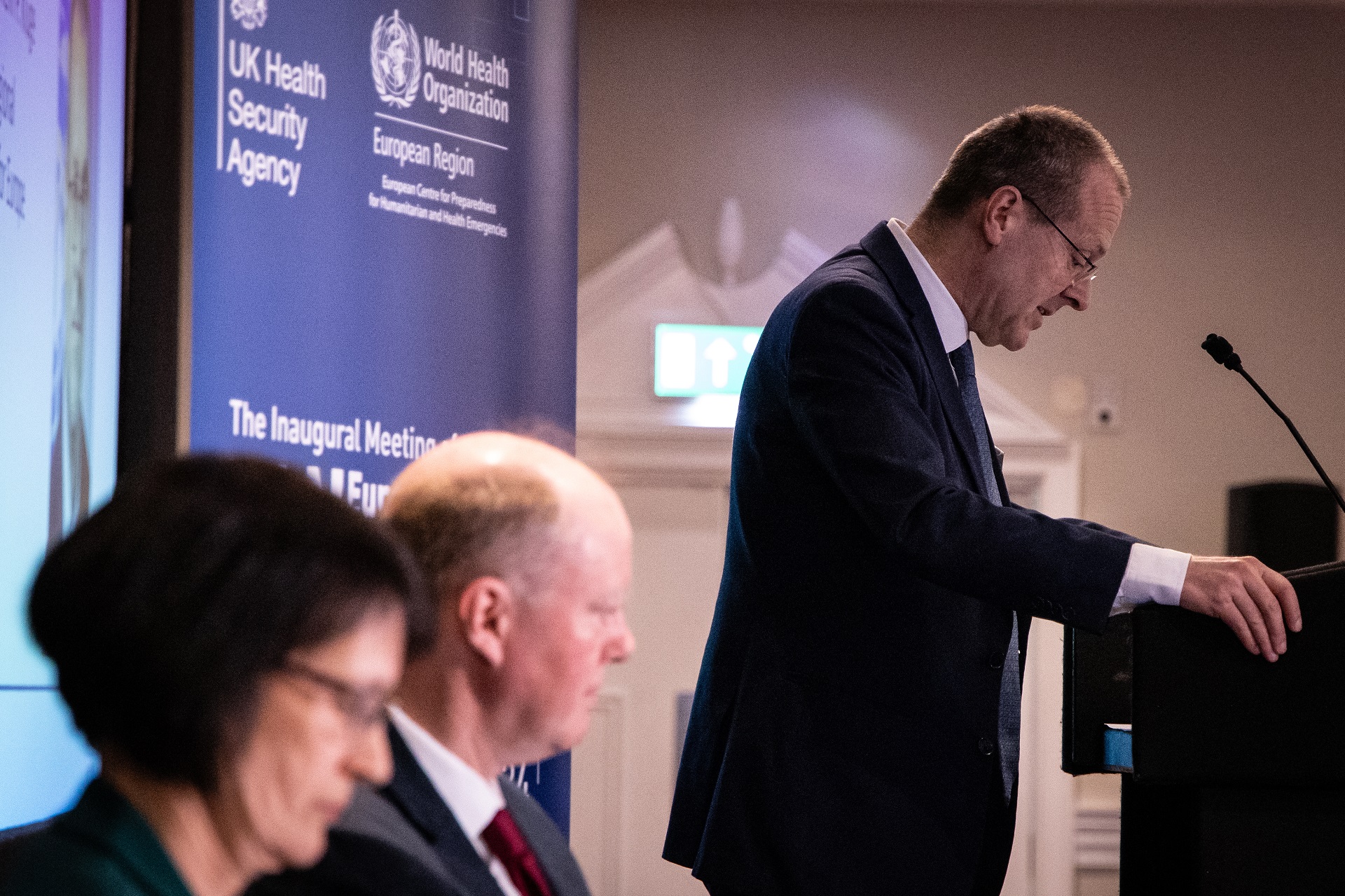
Credit: WHO. Dr Hans Henri P. Kluge, WHO Regional Director for Europe, at the launch of the Pan-European Network for Disease Control (NDC) on 22 April 2024.
At the launch of the NDC on 22 April 2024, Dr Hans Henri P. Kluge, WHO Regional Director for Europe, stated, “At its core, the NDC represents a bold vision for our collective future – a future where data flows, knowledge is shared and resources are mobilized effectively. The challenges we face are unprecedented in scale and complexity. We simply cannot afford to act alone.”
He added, “Unity through multilateralism is the only way forward. The NDC embodies our commitment to forge stronger bonds to counter the permacrisis of our time. It truly serves as a testament to our shared resolve.”
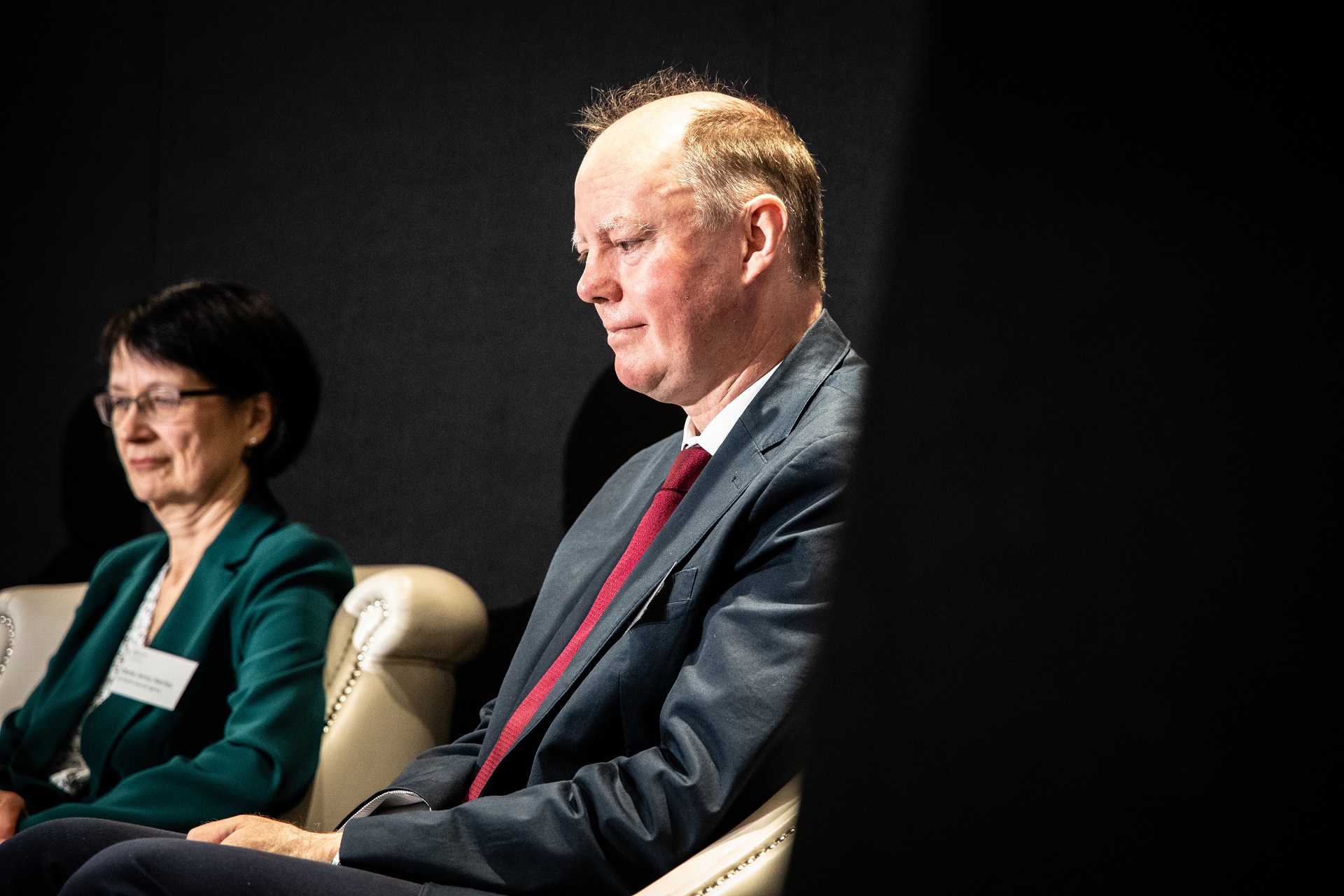
Credit: WHO. Dame Jenny Harries, Chief Executive of the United Kingdom Health Security Agency, and Professor Sir Chris Whitty, Chief Medical Officer of the United Kingdom, at the NDC launch.
Professor Sir Chris Whitty, Chief Medical Officer of the United Kingdom, noted, “It is surprising how quickly people forget the very risk of infectious diseases. The time span between a major infectious emergency being a small dot on the horizon to being a huge problem is very short. The speed of movement is extraordinary, and if you do not have international collaboration, and do not share the multiple skills you have, very few countries on their own have the full range of pace and scale that is needed.”
The establishment of the NDC marks a significant milestone in our journey towards a healthier, more resilient future, learning from the lessons of the COVID-19 pandemic.
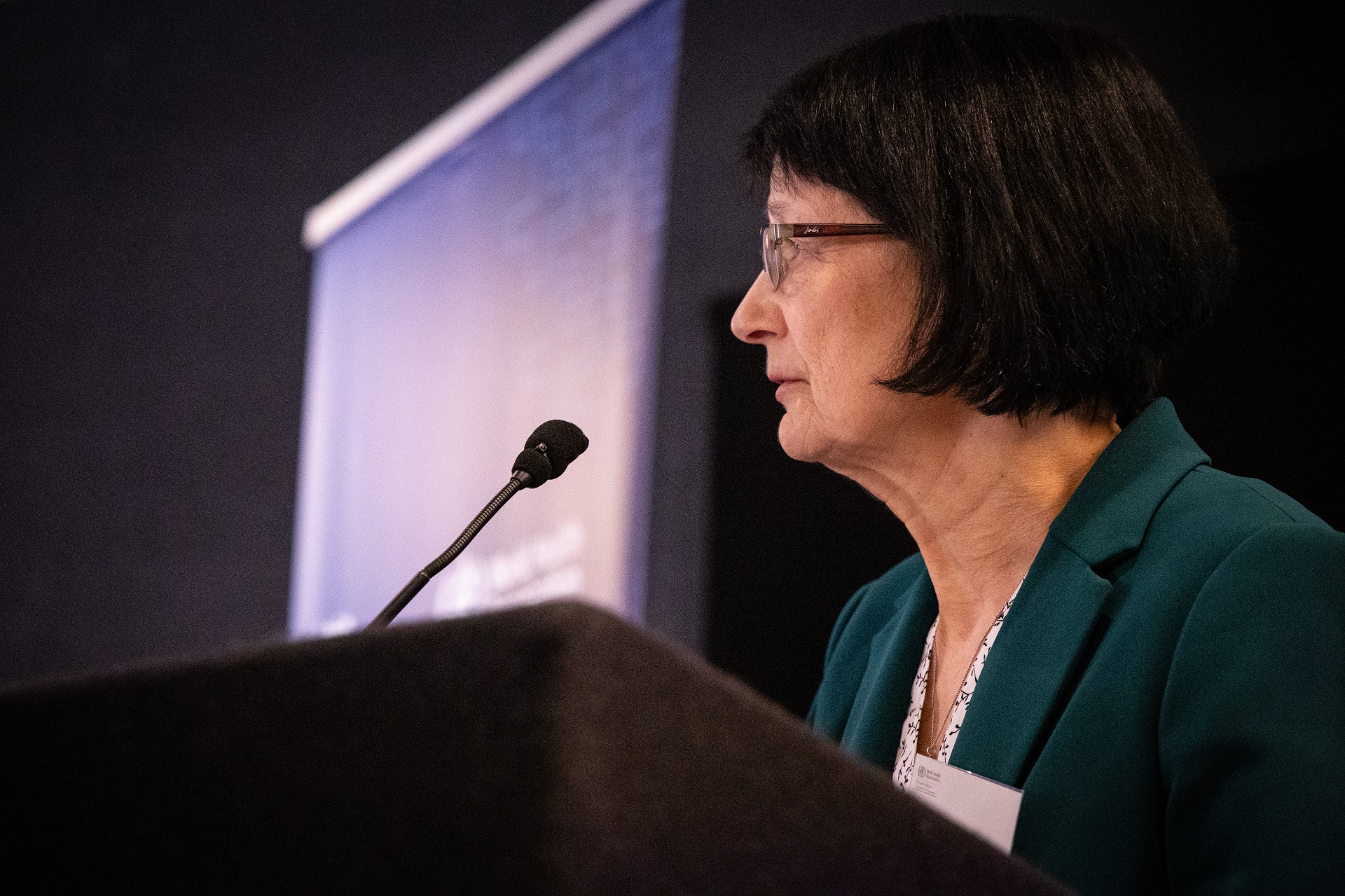
Credit: WHO. Dame Jenny Harries delivers opening remarks.
WHO/Europe’s launch of the NDC was hosted by the United Kingdom Health Security Agency (UKHSA). UKHSA Chief Executive Dame Jenny Harries will serve as Chair of the NDC Steering Group.
Dame Harries explained, “The NDC is essentially a network of networks. Its core mission is to bolster the preparedness of the WHO European Region by proactively identifying and mitigating potential risks before they escalate into regional or global threats. It can play a vital role by facilitating collaboration and knowledge sharing, and by promoting common standards for disease control in the Region to help facilitate a unified approach to disease management across Europe.”
She emphasized, “What we really want to do is to prevent the next pandemic, not just respond to it.”
The NDC will contribute to the implementation of WHO/Europe’s Preparedness 2.0 strategy, which will be presented and discussed during the next annual session of the WHO Regional Committee for Europe in October.
Preparedness 2.0 represents a paradigm shift – a reimagining of our approach to safeguarding the health and well-being of all. It aligns with global agendas such as the Health Emergency Preparedness, Response and Resilience architecture, and the Pandemic Accord being worked on by WHO Member States.
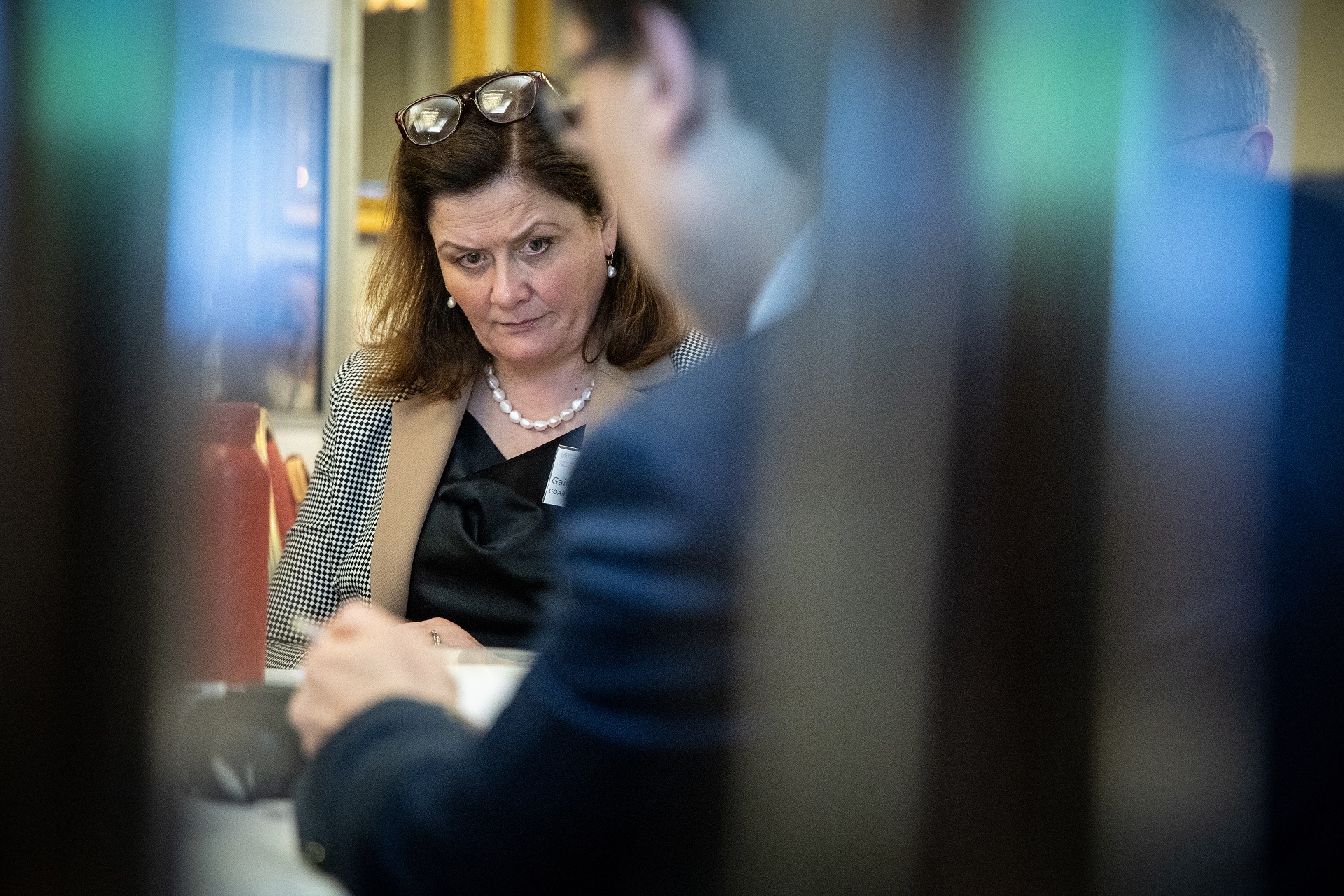
Credit: WHO. Dr Gail Carson, Chair of the Technical Advisory Group for Preparedness 2.0, at the NDC launch.
Dr Gail Carson, Chair of the Technical Advisory Group for Preparedness 2.0, said, “The recently launched NDC provides a forum to assist in aligning regionally based partners with the new Preparedness 2.0 strategy and to help with its implementation.”
She added, “A lesson from my first outbreak experience over 2 decades ago was that there is no room for pride or ego. As we work together to shape, own and implement Preparedness 2.0, the health emergency preparedness, response and resilience strategy for the WHO European Region, I hope that we will create a more equitable Europe.”
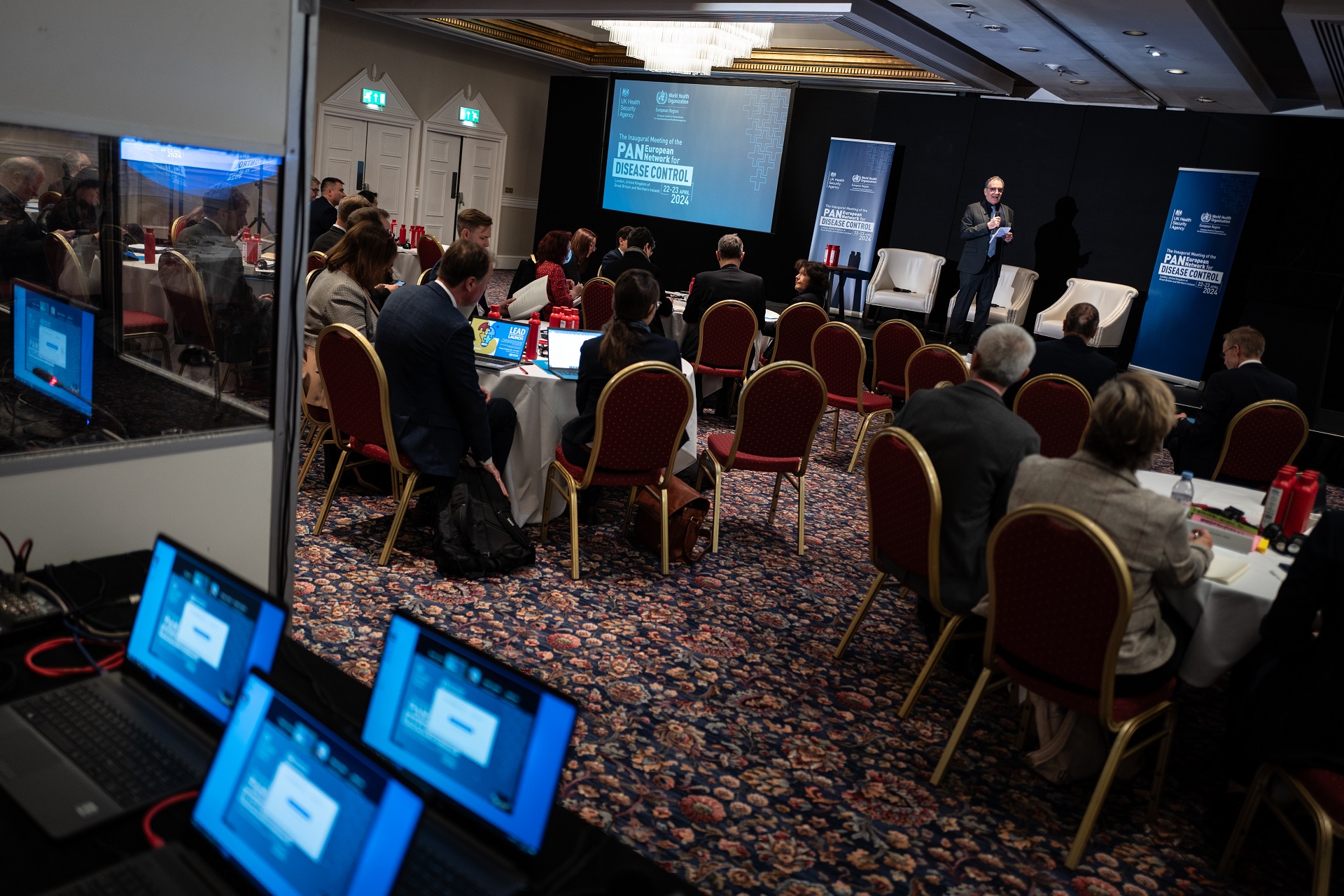
Credit: WHO. Dr Pierre Nabeth, Head of Office of the WHO European Centre for Preparedness for Humanitarian and Health Emergencies, speaks to the members of the NDC on 22 April 2024.
The NDC aims to be more inclusive than previous disease control networks, incorporating national, subregional, and regional institutions and organizations from countries of the European Union as well as other countries across Europe and central Asia. The NDC Secretariat is hosted by the WHO European Centre for Preparedness for Humanitarian and Health Emergencies (PHHE) in Istanbul, Türkiye.
Dr Pierre Nabeth, Head of Office of the PHHE, remarked, “One of the key recommendations of a WHO independent commission in 2021 on the lessons learned from the pandemic, chaired by former Italian Prime Minister Mario Monti, was to set up the Pan-European NDC. Coordinating and sharing information across this diverse Region poses a series of challenges, which were exacerbated and thus made highly visible by the COVID-19 pandemic. The idea of the NDC is to link all the capacities, all the skills in all the countries of the Region, to be ready for all types of emergencies.”
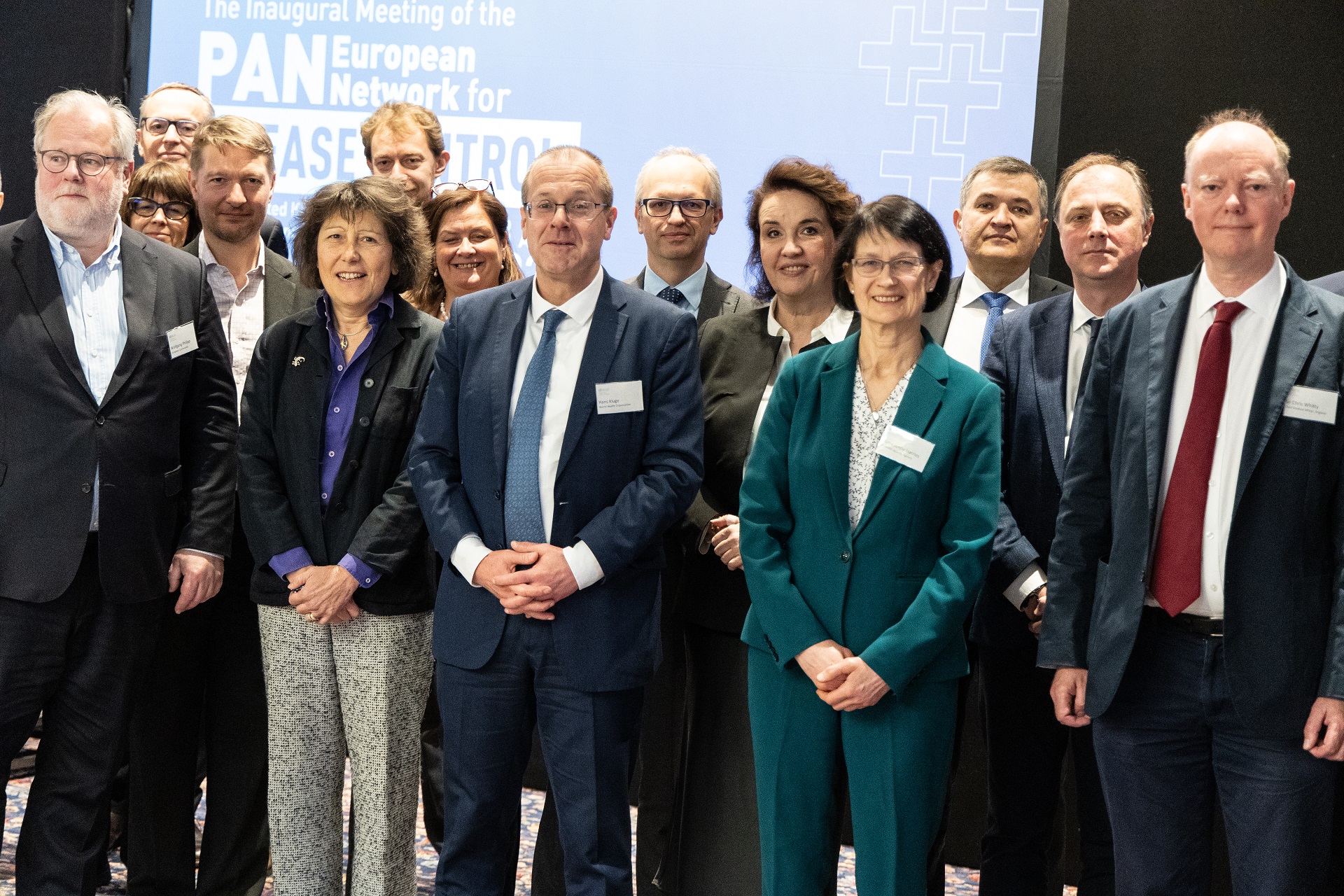
Credit: WHO. Members of the NDC pose for a group photo. As a network of health security networks, the NDC’s mission is to bolster the preparedness of the WHO European Region.
The creation of the NDC embodies an unwavering commitment to forge stronger bonds of cooperation and solidarity to counter infectious diseases and health emergencies. It serves as a testament to the shared resolve of its members. The NDC will:
- play a vital role in keeping people safe by facilitating collaboration and knowledge sharing among nations, public health agencies, academia and civil society;
- promote common standards to help facilitate a unified approach to disease management across Europe and central Asia;
- leverage the existing networks convened through WHO/Europe and the European Centre for Disease Prevention and Control to create opportunities for technical collaboration and research;
- promote the development of innovative approaches by facilitating the sharing of case studies, technical expertise, best practices and resources to help NDC members and WHO European Member States develop new skills and partnerships; and
- improve interdisciplinary coordination among animal, human and environmental sectors at national, regional and global levels, taking a One Health approach to disease control.
Event notice
22 April 2024
The Pan-European Network for Disease Control (NDC) is conceived as a network of networks that will play a vital role in facilitating collaboration and knowledge sharing and promoting common standards for disease control in the WHO European Region. This is all the more critical in the wake of the COVID-19 pandemic.
Its inaugural meeting is being organized by the NDC Secretariat (convened by WHO/Europe) and hosted by the United Kingdom Health Security Agency. This launch aims to lay the groundwork for coordinated action and collaboration among Network members towards achieving the shared goal of enhancing emergency preparedness in the Region.
The event will be attended by WHO Regional Director for Europe Dr Hans Henri P. Kluge along with representatives from leading public health institutions and the ministries of health of participating countries.




